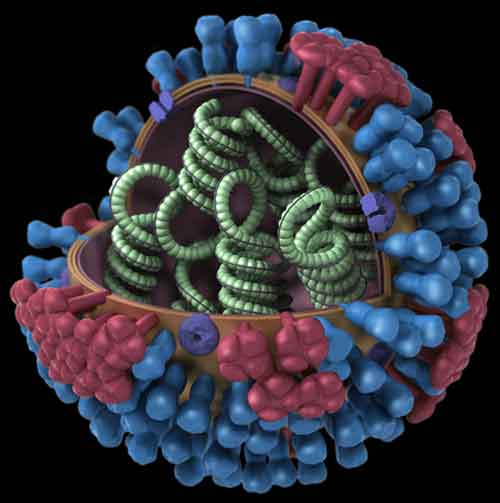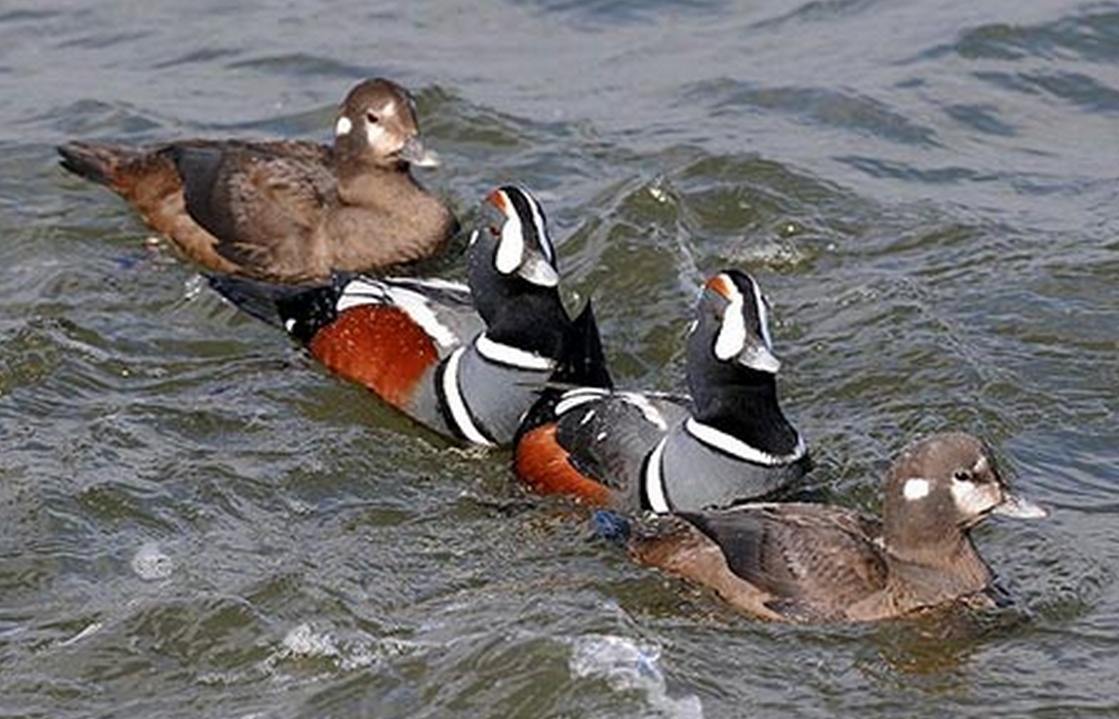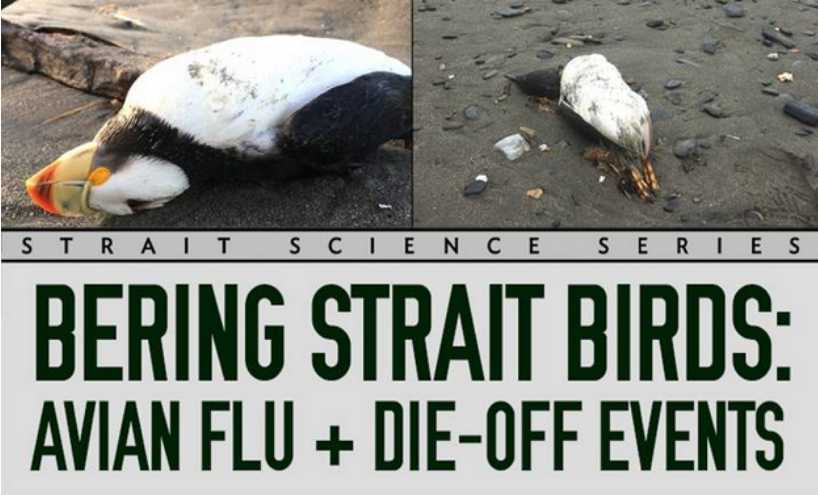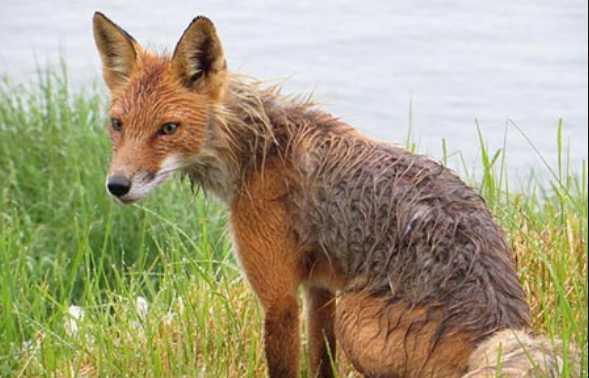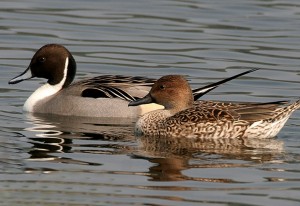
(Juneau) — Avian influenza has been confirmed recently in wild birds in northwestern Washington and southwestern Oregon, but risks are negligible to waterfowl and waterfowl hunters in Alaska where hunting seasons remain open in some regions.
“This is primarily a waterfowl issue in Washington and Oregon, but can be a threat to domestic poultry,” said Alaska Department of Fish and Game Wildlife Veterinarian Dr. Kimberlee Beckmen. “It’s unlikely to pose any threat to Alaska’s waterfowl populations and these strains have never been found to infect humans.”
Two strains of highly pathogenic H5 virus – H5N2 and H5N8 – were found earlier this month in Whatcom County, Washington. The H5N2 strain was confirmed in a northern pintail duck, while the H5N8 virus was verified in a captive gyrfalcon that had been fed hunter-killed wild birds. In Winston, Oregon, the H5N8 avian influenza was identified in a small backyard poultry flock that had open access to a pond and marsh that wild waterfowl commonly use.
“The term ‘highly pathogenic’ means it is highly pathogenic to domestic poultry and says nothing about its potential impacts on wild birds or pets or humans,” said Dr. Beckmen. Outbreaks of H5N8 have occurred in domestic fowl across Europe and Asia over the last year with no associated cases in humans.
Avian flu concerns have prompted increased surveillance of wild birds in Alaska in the past. Between 2006 and 2010, nearly 57,000 birds were tested for H5N1, and none tested positive for the virus. The Alaska Departments of Fish and Game, Environmental Conservation, and the U.S. Geological Survey are performing surveillance testing for avian influenza.
“Neither H5N2 nor H5N8 have been found in Alaska,” said DEC State Veterinarian Dr. Bob Gerlach.
Alaska waterfowl hunting seasons remain open through December 31 in Southeast and through January 22, 2015, around Kodiak Island and the Aleutian Chain. While no public health concerns have been associated with either H5N2 or H5N8 avian influenza strains, these cases serve as reminders that wildlife can carry pathogens of many kinds. As always, Alaska hunters should practice routine hygiene when handling, cleaning and cooking wild game. The Department of Fish and Game recommends the following:
- Do not handle or eat obviously sick game.
- Wear rubber or disposable latex gloves while handling and cleaning game.
- Wash hands and thoroughly clean knives, equipment and surfaces that come into contact with game.
- Do not eat, drink or smoke while handling animals.
- All game should be thoroughly cooked (meat internal temperature of 165 °F).
Poultry owners can protect backyard flocks by taking measures to prevent them from interacting with wild birds. Neither H5N2 nor H5N8 have been found in any commercial poultry flocks.
Dead or sick domestic birds should be reported to the DEC at (907) 375-8215; for more information, contact Dr. Bob Gerlach bob.gerlach@alaska.gov in Anchorage at 375-8214. Dead or sick wild birds should be reported to ADF&G Wildlife Health and Disease Surveillance Program, phone: (907) 328-8354, email: dfg.dwc.vet@alaska.gov; or to the U.S. Fish and Wildlife Service Avian Disease Hotline at 1-866-527-3358.



